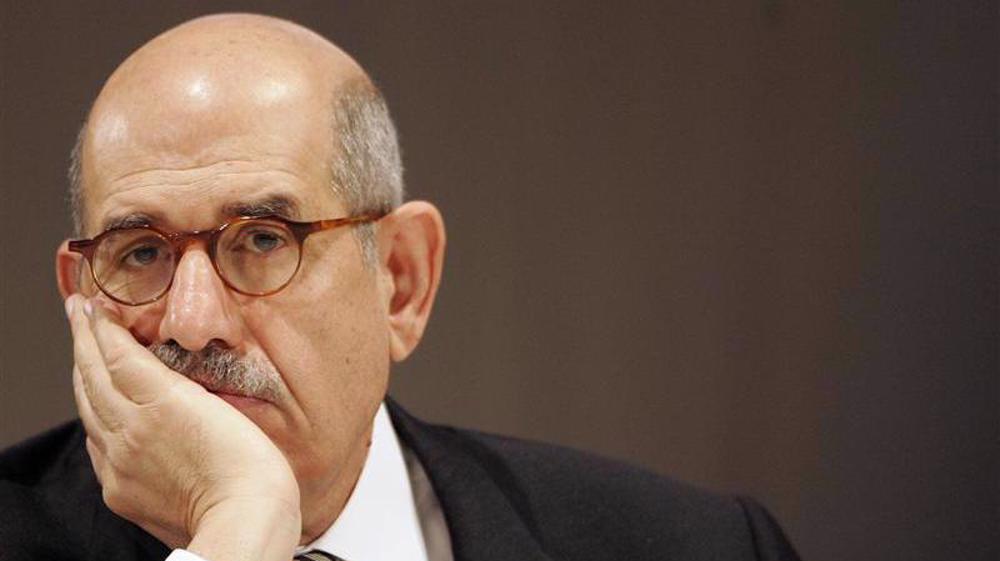US senators force Obama’s hands on Ukraine lethal aid
US senators are adopting a new measure that would push President Barack Obama closer to providing lethal aid to Ukraine amid heightened tensions with Russia.
Lawmakers are supporting a bipartisan provision in the National Defense Authorization Act (NDAA), a federal law specifying budget for the Pentagon, which would give the White House $300 million for Ukrainian military assistance, according to The Hill.
The provision states that half of that amount would be withheld until at least 20 percent of the funding goes to lethal aid.
The White House has argued that senators are “forcing the hands” of the president.
Senators, on the other hand, have expressed dismay at the administration over its slow response to Ukraine’s requests for military equipment.
Sens. John McCain (R-Ariz.) and Rob Portman (R-Ohio) want the administration to provide them a list of all the requests for military assistance to Ukraine, when those requests were submitted, and when the White House is making a decision.

Other senators are using the annual military spending bill to prevent the White House from easing a ban on the use of Russian rocket engines, The Hill reported.
Sen. Joni Ernst, a freshman Republican from Iowa, has introduced amendments requiring the administration to keep the ban in place until it can show that Russia is no longer “violating the territorial integrity” of Ukraine, or supporting pro-Russia forces in the east of the country.
Sen. Bill Nelson (D-Fla.) said Congress should prevent US “dependence on Russian spacecraft” as “the only means by which we get to orbit to our own international space station.”
Meanwhile, Sen. Mark Kirk (R-Ill.) is seeking to block missile cooperation with Russia until Moscow has pulled out of Crimea and terminated a contract to sell Iran a missile defense system.

The massive NDAA gives lawmakers their best chance to press the Obama administration on Ukraine policy, given the fact that Congress has passed the legislation each year for the past 53 years.
In a broadly bipartisan 348-48 vote on March 24, the House of Representatives approved a resolution demanding the White House end its delays in providing heavy military equipment, including lethal weapons, to Ukraine’s forces.
Meanwhile, US officials have indicated that the Pentagon is ready to store heavy military equipment in East Europe to counter “Russian aggression” in Ukraine.
On Saturday, The New York Times quoted officials as saying that the weaponry, which includes battle tanks and infantry fighting vehicles, would be enough for as many as 5,000 American troops.
Since the end of the Cold War, this would be the first time that the United States is stationing heavy weaponry in the Eastern European countries, once part of the Soviet Union.
A Russian defense official said on Monday that Moscow would swiftly respond to any move by Washington to build up military resources in Eastern Europe by fortifying its western border with more troops, tanks, planes and missile systems.

"If US heavy hardware including tanks, artillery systems, or other fighting vehicles does appear in some Eastern European and Baltic countries, this would mark the Pentagon and NATO's most aggressive step since the Cold War time of the past century,” said Army General Yury Yakubov, a coordinator from the Russian Defense Ministry’s general inspectors directorate.
Analysts say the move by the US would be a major escalation of tensions between Washington and Moscow.
“The announcement by the Pentagon… is really a major escalation of an already tense situation which is frankly uncalled for,” Michael Maloof, a former senior security policy analyst at the Pentagon, said in an interview with Press TV on Monday.
“This type of escalation only gets us even more involved in the whole Ukrainian situation as well which the United States can ill afford,” he said.
Ties between Washington and Moscow have reached an all-time low over the crisis in Ukraine, which began after pro-Western forces ousted the country’s president, Viktor Yanukovych, in February 2014.
Tensions further escalated after Ukraine’s Black Sea peninsula of Crimea voted for reunification with Russia in March last year.
HRJ/HRJ
Leader’s advisor warns of ‘deep’ retaliatory strikes into occupied territories
US Department of Justice releases millions of Epstein files, then pulls pages citing ‘rape’ by Trump
VIDEO | EU blacklists anti-terror organization
VIDEO | 44th Fajr Theater Festival underway in Tehran
VIDEO | Press TV's news headlines
VIDEO | Oil workers' march in support of reform of Venezuela's main oil law
VIDEO | Malaysians hold rally in front of Iranian embassy to condemn US, Israel threats
Israel to partially reopen Rafah border crossing after long closure










 This makes it easy to access the Press TV website
This makes it easy to access the Press TV website